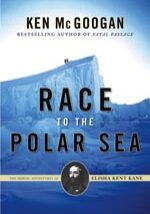In 701 B.C. the Assyrian empire was in its ascendancy. It had already vanquished the kingdom of Israel to the north including the capital at Samaria. It then prepared an assault on Judah and its capital at Jerusalem.
But in one of those significant events that changes the course of world history, Assyria was repelled. Jerusalem was saved until 586 B.C. when the Babylonians sacked the city, forcing its leadership class into exile.
Henry Aubin, in a major feat of scholarship, determines that Jerusalem was aided by a Kushite army from Africa which had marched northeast from the Nile valley. While the Bible attributes the Assyrian retreat to an angel and secular commentators cite pestilence, Aubin, in a meticulously documented work, demonstrates that an alliance with the African nation of Kush bolstered Jerusalem’s defences.
Kush, also known as Nubia, was located in what is now southern Egypt and northern Sudan. A monarchy that existed for more than 1000 years, from 900 B.C. to A.D. 350, Kushites held sway over Egypt from 712 B.C. to about 660 B.C. Of Egypt’s 31 dynasties, this, the 25th Dynasty, is the only one that all scholars agree, was black.
The commander of the Kushite expeditionary force was Taharqa (or as the Bible calls him Tirhakah). This Kushite prince, who had his own interests in halting Assyrian expansion, likely caught the aggressors by surprise as they prepared their siege of Jerusalem.
Aubin offers a thrilling military history and a stirring political analysis of the ancient world. He also sees the event as influential over the centuries.
The Kushite rescue of the Hebrew kingdom of Judah enabled the fragile, war-ravaged state to endure, to nurse itself back to economic and demographic health, and allowed the Hebrew religion, Yahwism, to evolve within the next several centuries into Judaism. Thus emerged the monotheistic trunk supporting Christianity and Islam.

“Ken McGoogan’s magnificent Race to the Polar Sea [is] arguably the most evocative of his four volumes on vintage Arctic exploration. The most literate of the northern adventurers, Kane left an impressive legacy that McGoogan, who sailed the same waters – now ice-free – explains, expands and makes relevant. This is a memorable book about an unforgettable odyssey.”
Peter C. Newman
“A terrifically accessible account of this wide-eyed, extraordinarily intrepid adventurer’s thrilling and chilling exploits.”
Kirkus Review
“McGoogan’s fascinating biography focuses on a neglected figure from the early era of polar exploration…With his access to previously unknown Kane logbooks, McGoogan makes an impressive case for the bravery and importance of the explorer who first identified the Greenland ice sheet.”
Publisher’s Weekly
Honourable Mention in the Canadian Nautical Research Society’s prestigious Keith Matthews award competition. The jury said:
“Race to the Polar Sea is an engagingly written, impressively researched, and engrossing account of explorer, adventurer, and scientist Elisha Kent Kane’s harrowing experiences.”

Counterpoint US 2008
HarperCollins Canada 2008
Race To The Polar Sea
The dramatic story of a young adventurer whose rightful place in Arctic legend was ruined by his love for an unsuitable woman
One day in July 1853, explorer Elisha Kent Kane stood on the deck of the Advance off the coast of Greenland, wrestling with a momentous decision. Should he continue to risk the lives of his men in their search for the lost Franklin expedition and be the first to reach the North Pole?
Kane, 33, had already refused to allow his heart ailment to stop him from becoming a gifted writer, an accomplished ladies man, and an intrepid explorer. He had descended into a volcano in the Philippines, infiltrated a company of slave traders in West Africa, and narrowly survived a stabbing during hand-to-hand combat in the Sierra Madre. Now, he hoped to find the mythical, temperate Polar Sea which some imagined lay beyond a barricade of ice at the top of the world and led to the riches of China.
Master storyteller Ken McGoogan brings to life the dramatic tale of this extraordinary young man who, in the 1850s led his men in traveling 1300 miles in 83 days, first by sledge and dogsled, then in small open boats.
Returning home to international acclaim, Kane faced a personal dilemma. His prominent Philadelphia family disapproved of his romantic attachment to spiritualist Maggie Fox. How this star-crossed relationship combined with Kane’s tragic early death to deny the explorer his rightful place in history is one of the most fascinating aspects of this story.
In a thrilling development, Ken McGoogan uncovered journals by Kane, never before seen, that reveal a tale of heroism, courage, and conspiracy, and evoke a time when dreams of glory drove men to risk their lives at the top of the world.
Ken McGoogan is the bestselling, author of three previous books on Arctic explorers and adventurers, Fatal Passage, Ancient Mariner and Lady Franklin’s Revenge. His awards include the Christopher Award, the Pierre Berton Award, the Drainie-Taylor Biography Prize. Fatal Passage, the story of explorer John Rae and his confrontation with Lady Jane Franklin and Charles Dickens, has been adapted for a film, which has debuted theatrically and will be released on UK, US and Canadian TV in 2008.

SEE NEXT PAGE FOR MORE REVIEWS
http://www.kenmcgoogan.blogspot.com
http://www.youtube.com/watch?v=aeuGZkSNPPQ
To find out more about the award-winning documentary Passage, based on Ken McGoogan’s award-winning book Fatal Passage, please click here:
http://www3.nfb.ca/webextension/passage/